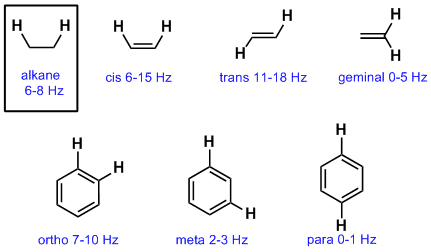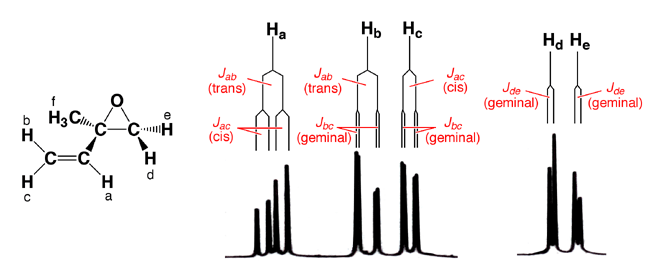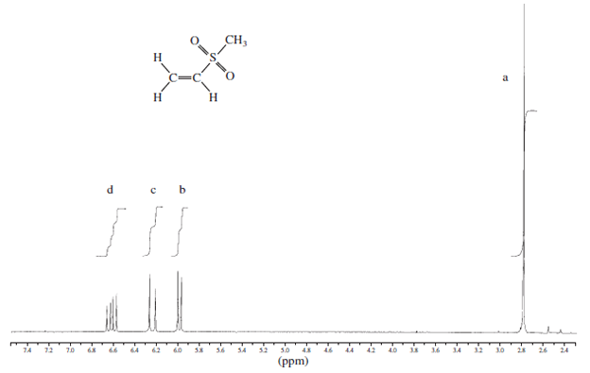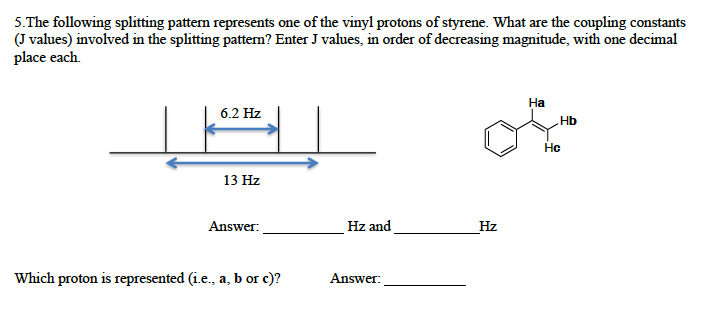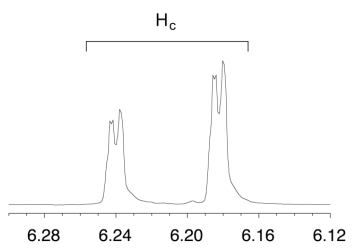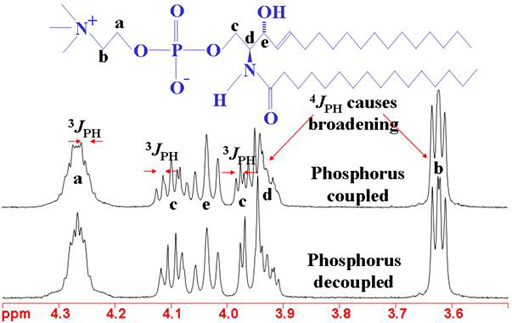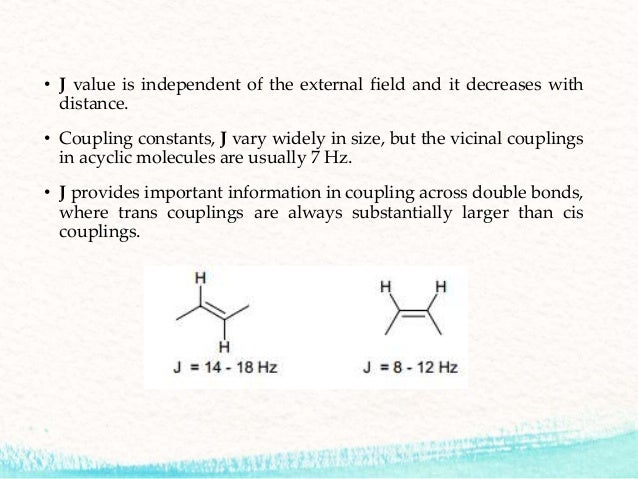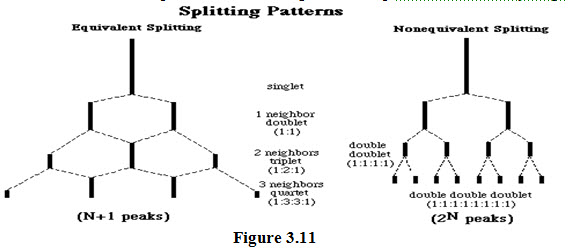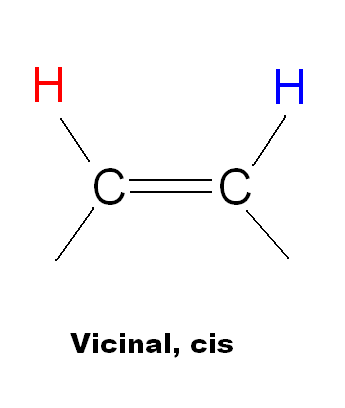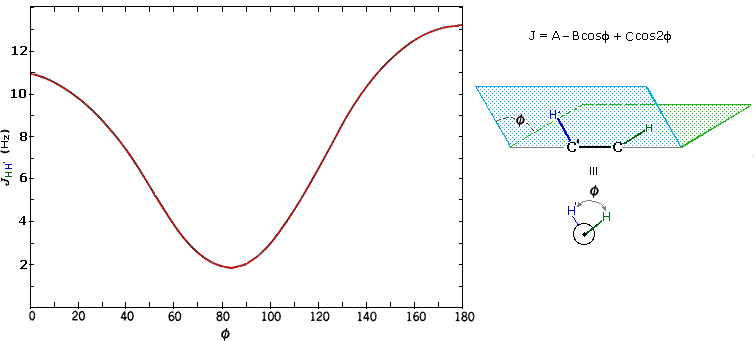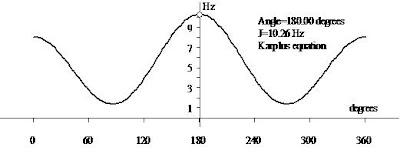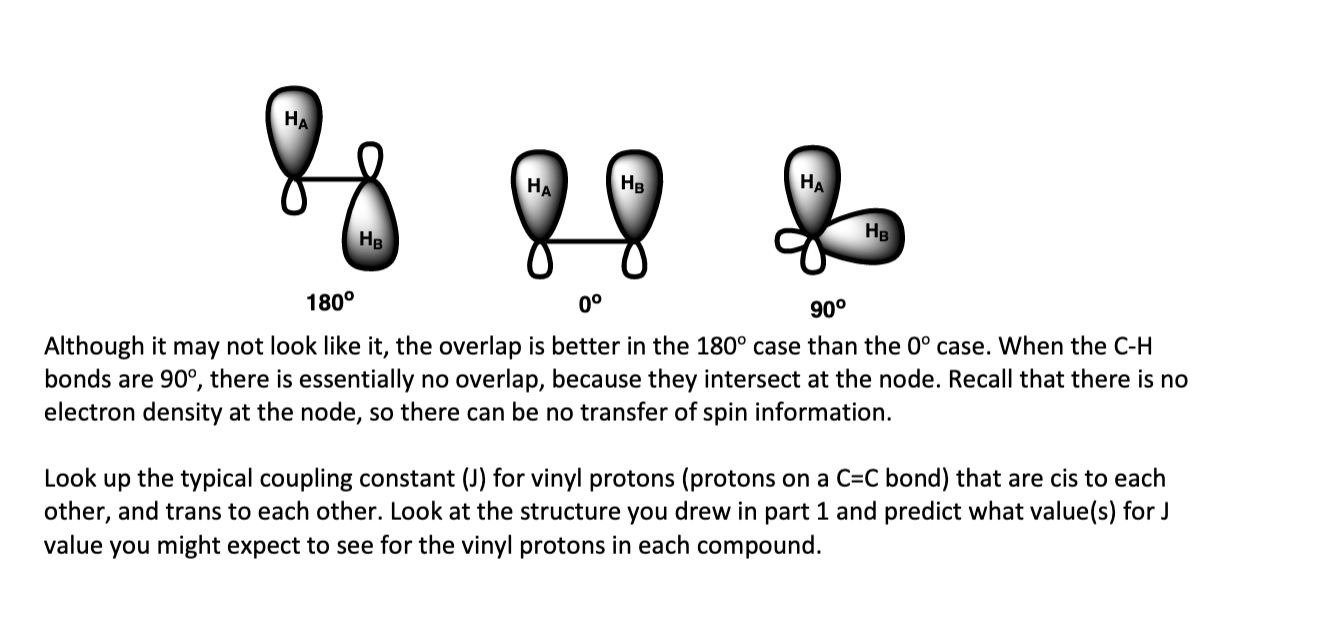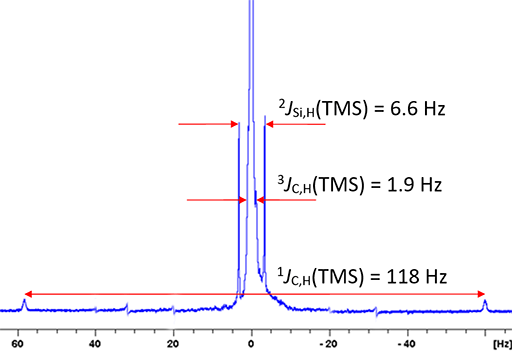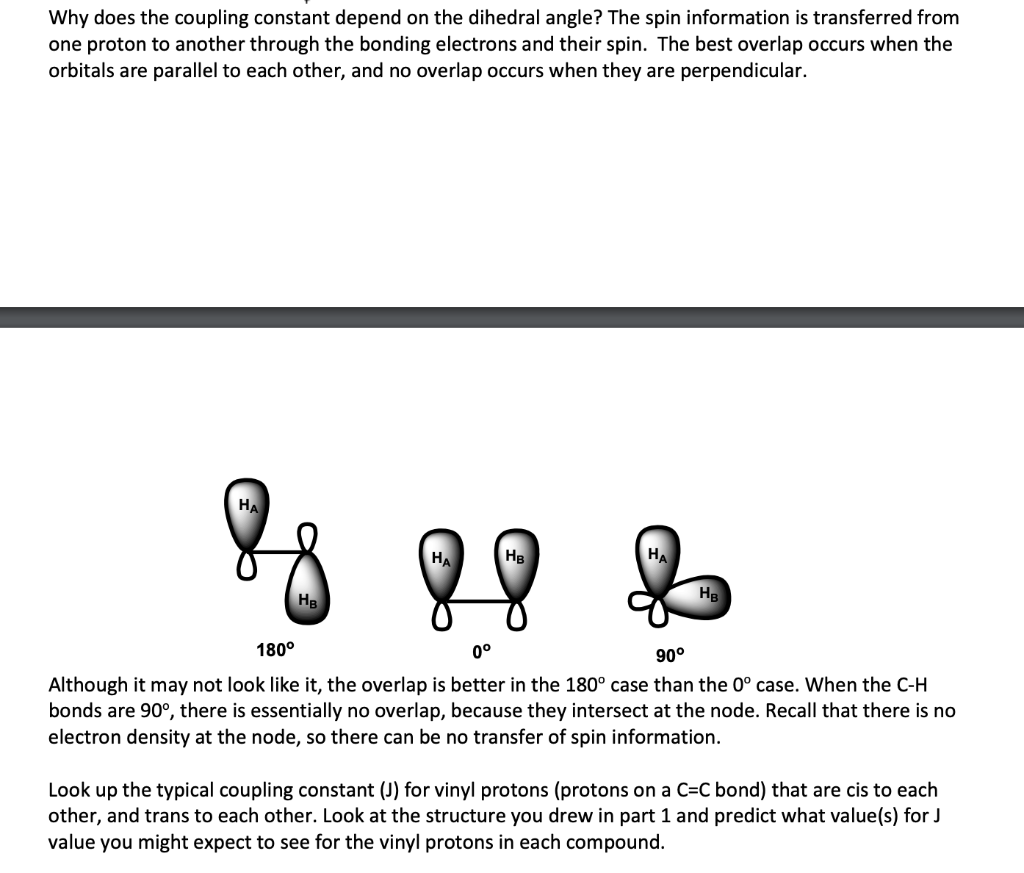Vinyl Coupling Constants

Environment coupling value hz aliphatic h c h geminal.
Vinyl coupling constants. In 1 h nmr spectrum hydrogen atoms bound to a carbon consisting of a double bond these hydrogens are called alkenyl hydrogens are typically found in low field of the nmr spectrum which is the left side and the hydrogens are said to be. Three bonds participate in coupling. For background information of 1 h nmr you can refer 1 h nuclear magnetic resonance from the last chapter. Coupling constants chem 117 here is the observed spectrum at 90 mhz in cdcl 3 lambert and mazzola pg 101.
The coupling constant drops to 3 9 hz for any sequence containing at least one meso vv vinyl alcohol dyad which indicates that the average dihedral angle between the methine and hydroxyl protons is different for these sequences. For vinylic hydrogens in a trans configuration we see coupling constants in the range of 3 j 11 18 hz while cis hydrogens couple in the 3 j 6 15 hz range. The implications are that the spacing between the lines in the coupling patterns are the same as can be seen. Hydrogens near double bonds are deshielded.
It ranges from 10 18 and denoted by 2 but one condition is applied that the proton present should be non equivalent. Types of coupling constant. Suppose we have one peak at 4 260 ppm and another at 4 247 ppm. In general though a plot of this equation has the shape shown in figure 1 4.
This type of coupling occurs between protons present on single carbon specifically in the terminal vinyl system. The equation follows the general format of j a b cos θ c cos 2θ with the exact values of a b and c dependent on several different factors. It is also possible to observe satellites from 2 j ch hcc and 3 j ch hccc coupling. In a vicinal system of the general type h a c c h b then the coupling of h a with h b j ab must be equal to the coupling of h b with h a j ba therefore j ab j ba.
The tables below list coupling constants for a few general cases. There are some 10 lines visible. Note that this odd appearance will not be improved by going to a higher magnetic field strength. The coupling constant between two protons is affected by the dihedral angle between them.
The first thing to do is convert the peaks from ppm into hertz. The trick is that j is measured in hz not ppm. For more specific cases see these lists of h h coupling constants and c h coupling constants. Calculation of coupling constant.
2 j hh 15 10. With protons bound to sp 2 hybridized carbons coupling constants can range from 0 hz no coupling at all to 18 hz depending on the bonding arrangement. For the simple case of a doublet the coupling constant is the difference between two peaks. Interestingly the satellites of the vinyl protons 1 j ch 184 2 hz are doublets because the isotopic label now makes the two protons non equivalent and we can detect the coupling between them 6 0 hz.
